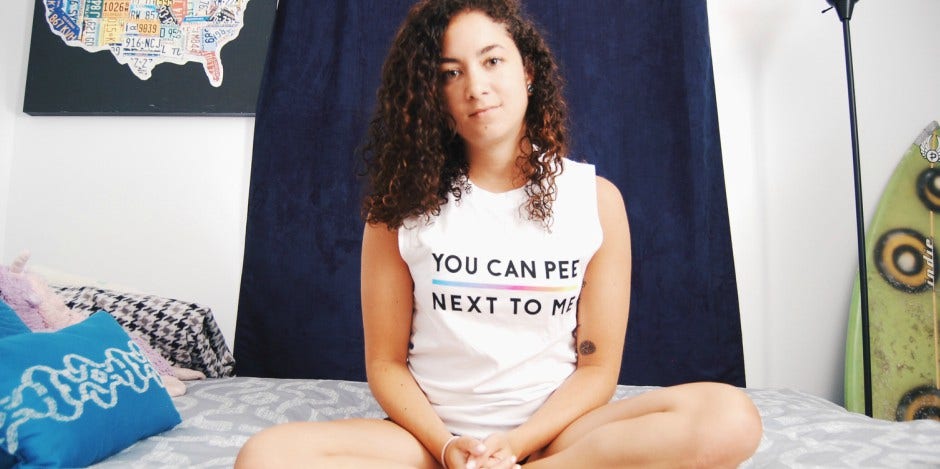Based On Current Laws, We've Probably ALL Been Sexually Assaulted
The vagueness of sexual assault laws leaves both men and women at risk.
 courtesy of the author
courtesy of the author The first time it happened to me I was 17.
I had gotten into an argument with my mom and, in true dramatic, angsty-teen fashion, stormed out the door with my keys in hand and nowhere in particular to go. I texted a few friends for a place to stay and the first one to answer was a male friend who lived nearby.
I took him up on his offer, met him in his pool house and thanked him for letting me stay that night.
Minutes later I was pushing him off me after he took it upon himself to start kissing me. I felt simultaneously stunned and ashamed, and was left apologizing for something I now know was not my fault. He had mistaken my innocent need for a place to sleep as me wanting to sleep with him.
Though I didn’t realize it at the time, I was sexually assaulted that night.
At the outset, the sexual assault definition seems relatively simple: It’s what we call what happens to children who are molested. It’s the word for what happens to women late at night as they’re walking to their car. By definition, it’s “any type of sexual contact or behavior that occurs without the explicit consent of the recipient.”
And therein lies the problem.
When you stop and think about it, the definition of sexual assault is broad — so, so broad. It casts a gray area so wide that even seemingly cut-and-dry rape cases (think: Brock Turner) go largely unpunished, while others, like this man in Switzerland, was convicted of sexual assault for taking his condom off during consensual sex.
The vagueness of sexual assault laws leaves both men and women at risk.
Obviously, women run the risk of becoming victims of sexual assault and never seeing their abusers face justice — or even simply reporting the assault in the first place. Because while consent is a major determining factor in whether or not a legitimate sexual assault occurred, it’s a lot more complicated than simply saying "yes" or "no."
According to the Rape, Abuse & Incest National Network (RAINN), there are three ways consent is measured: 1) Affirmative consent — that’s the actual act of saying, “yes!” 2) Freely given consent, meaning no one forced you to say "yes." And lastly, 3) Capacity to consent, where things like alcohol and age come into play.
In my case, the man I was with made a move on me without my affirmative consent — something that’s likely happened to most (if not all) women. Think about it: the last time you were on a first date, did he go in for a kiss without explicitly asking for permission? Or, if you're already mid-makeout with someone... does he also need your permission to put his hand up your shirt? If not up your shirt, how about down your pants? Where do we draw the line?
But... it would be ridiculous if every single one of those women brought such a situation to court, right? It almost trivializes the act of sexual assault.
Of course, situations only get murkier when you add things like alcohol to the mix.
No matter how put-together you think you are when you’re drunk, alcohol impairs your ability to make sound decisions. While in the moment you may freely give affirmative consent, your capacity to consent is severely compromised. So, any time you’ve woken up next to someone you may or may not know after a booze-fueled night out with little to no recollection of how you got there? Yep, according to the law, you were sexually assaulted.
Clearly, this is incredibly dangerous for women — it’s far too easy to take advantage of a girl who’s had too much to drink. But what about the men who also had too much to drink? Whose judgment is equally impaired and can’t tell a woman is too drunk to give consent because he’s just as drunk?
You can teach boys and men not to rape women all you want, but what if he doesn’t know he’s doing it? And if both people wake up not knowing what happened, were they both sexually assaulted?
There are so many different circumstances under which sexual assault can happen. Our current laws are somehow so strict and all-encompassing that they present too much wiggle room that honestly, no one is really protected because everyone becomes a victim at some point.
Which leaves us with the question: how do we effectively prevent sexual assault? Can it be defined — or is it too socially constructed at this point to even control?

